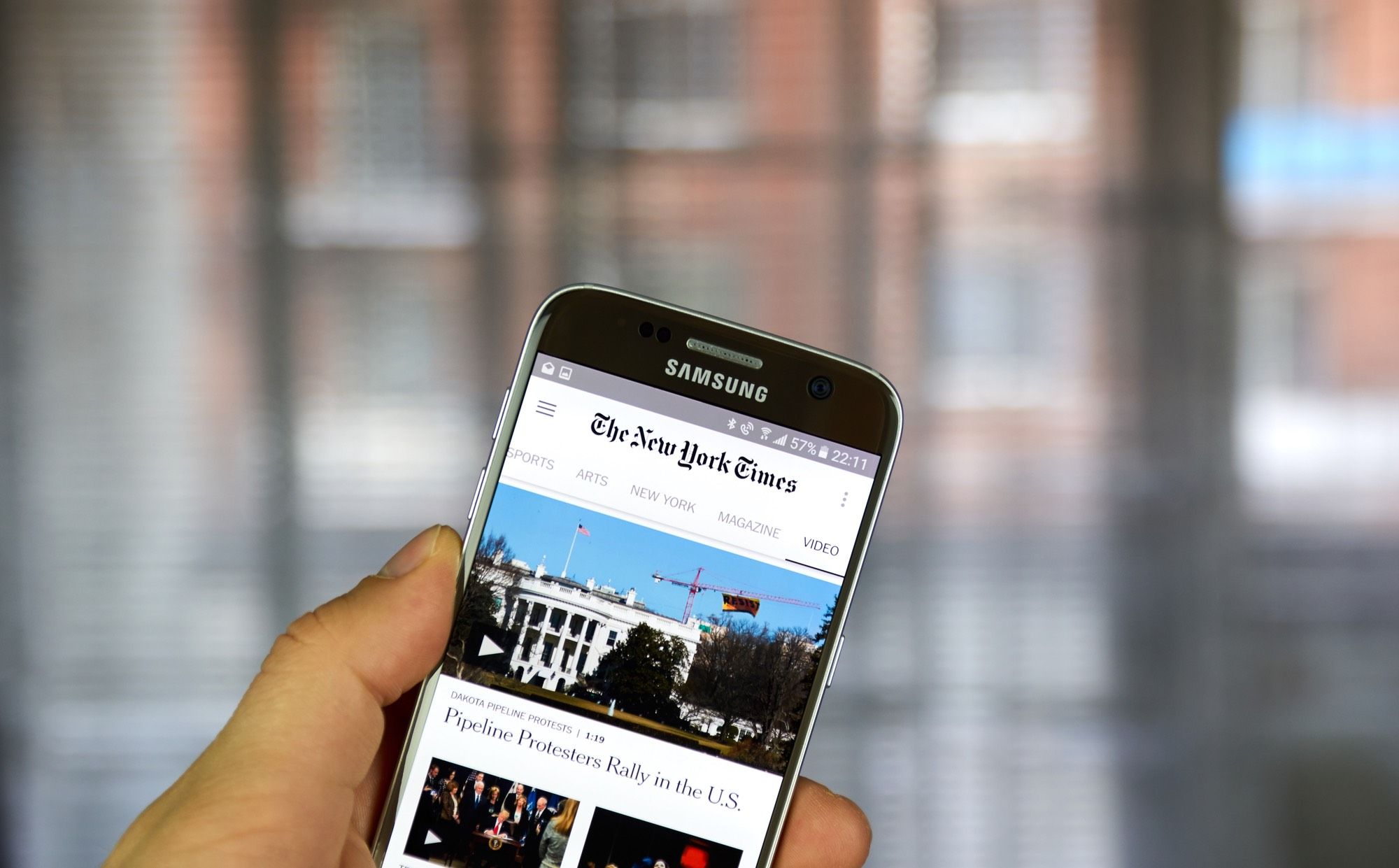Top Class Actions’s website and social media posts use affiliate links. If you make a purchase using such links, we may receive a commission, but it will not result in any additional charges to you. Please review our Affiliate Link Disclosure for more information.
The New York Times faces a class action lawsuit after a subscriber claimed the company does not inform readers that subscriptions automatically renew.
California resident Maribel Moses says she purchased a monthly subscription to The New York Times, and was unpleasantly surprised when she was charged for additional months, because her subscription renewed automatically.
She alleges that the company’s failure to alert customers to their practice of automatically renewing subscriptions violates California law.
Moses says she purchased her digital subscription to the venerable news source in August 2019. She explains that during the enrollment transaction, she gave her PayPal information to the company. However, Moses claims that she was prompted to give her payment information before fully consenting to the terms of her new subscription.
Allegedly, The New York Times did not disclose the automatic renewal terms that came with her subscription. She says the company did not obtain her consent to these terms.
Later on in the enrollment process, The New York Times company supposedly sent Moses an email to confirm her subscription. Even then, the company did not notify Moses of the automatic renewal terms applied to her offer, the cancelation policy or information on how to cancel, in a way that she could keep for her records, says Moses.
Moses argues that failing to adequately inform her and to gain her consent regarding the automatic renewal policy had a significant impact on her. She says the company renewed her subscription without her authorization a total of 10 times.
The New York Times class action lawsuit recounts how Moses attempted to cancel her subscription via email in May 18, 2020, but was still charged again. Just a week later, Moses says her subscription was once again automatically renewed, and she was charged via PayPal.
The newspaper subscription class action lawsuit argues that Moses was unable to successfully terminate her subscription because the company’s cancelation policy was so confusing. She says that key elements of the cancelation policy were missing from both the checkout page and acknowledgement email. Moses says she is still subscribed to The New York Times because of this problem.
Moses claims that according to California’s Automatic Renewal Law, a business must obtain affirmative consent to automatically renew a subscription before a customer makes their purchase. The business also must provide auto-renewal and cancellation instructions in a clear, easy-to-understand manner, notes Moses.
She also stresses that the law requires businesses to provide information outlining an “easy and efficient” mechanism by which consumers can cancel their subscriptions.

The New York Times class action lawsuit alleges that any subscriptions, services, merchandise, or products sent to consumers through automatic renewal as a result of a violation of the automatic renewal law are considered “unconditional gifts.”
Subsequently, she asks that her damages awarded include the amount she paid in subscriptions to the company, in addition to any other compensation the court sees fit.
Moses’ New York Times class action lawsuit asserts the publication was aware or should have been aware of California’s Automatic Renewal Law. To support the claim that the company was well aware that the automatic renewal policy leads consumers to purchase more subscriptions than they want, she cites numerous consumer complaints.
She says the publication intentionally misled its consumers about its policies, in an effort to gain as much money as possible from readers. Similarly, she argues that the company attempts to make cancelation difficult in order to enhance its own profits. Allegedly, the New York Times prioritized its profits over the law and over the best interests of its subscribers.
Have you had a New York Times subscription automatically renew without your consent? Share your experiences in the comments section below.
Moses is represented by Neal J. Deckant and Frederick J. Klorczyk III of Bursor & Fisher PA.
The New York Times Automatic Subscription Renewal Class Action Lawsuit is Maribel Moses v. The New York Times Company, Case No. 1:20-cv-04658, in the U.S. District Court for the Southern District of New York.
ATTORNEY ADVERTISING
Top Class Actions is a Proud Member of the American Bar Association
LEGAL INFORMATION IS NOT LEGAL ADVICE
Top Class Actions Legal Statement
©2008 – 2024 Top Class Actions® LLC
Various Trademarks held by their respective owners
This website is not intended for viewing or usage by European Union citizens.
















4 thoughts onNew York Times Class Action Says Subscriptions Auto Renew
Please add me
They make it intentionally difficult to cancel subscription, not allowing you to email, forcing you to a chat line the keeps you on HOLD forever, then drops your chat. After 3 tries with thebchar feature, I didn’t want to deal with a pushy phone salesperson to justify my RIGHT TO CANCEL, so I called my bank and cancelled the credit card out of frustration for an hour wasted! How do injoin this lawsuit?
Add me please
Yes new york times would not stop sending pspers